John Barrymore
- SilentCinemaSchool

- Sep 13, 2025
- 5 min read
Barrymore. Even in today's age, the name is familiar - and has been for many decades. So today, dear readers, I will attempt to delve into the Drew-Barrymore legacy. Yes, a few generations before Drew Barrymore ....there was an actress named Miss Drew, who married another actor named Mr. Barrymore. And their son John, once nicknamed "The Great Profile", is the star of our Screen Actor Saturday.
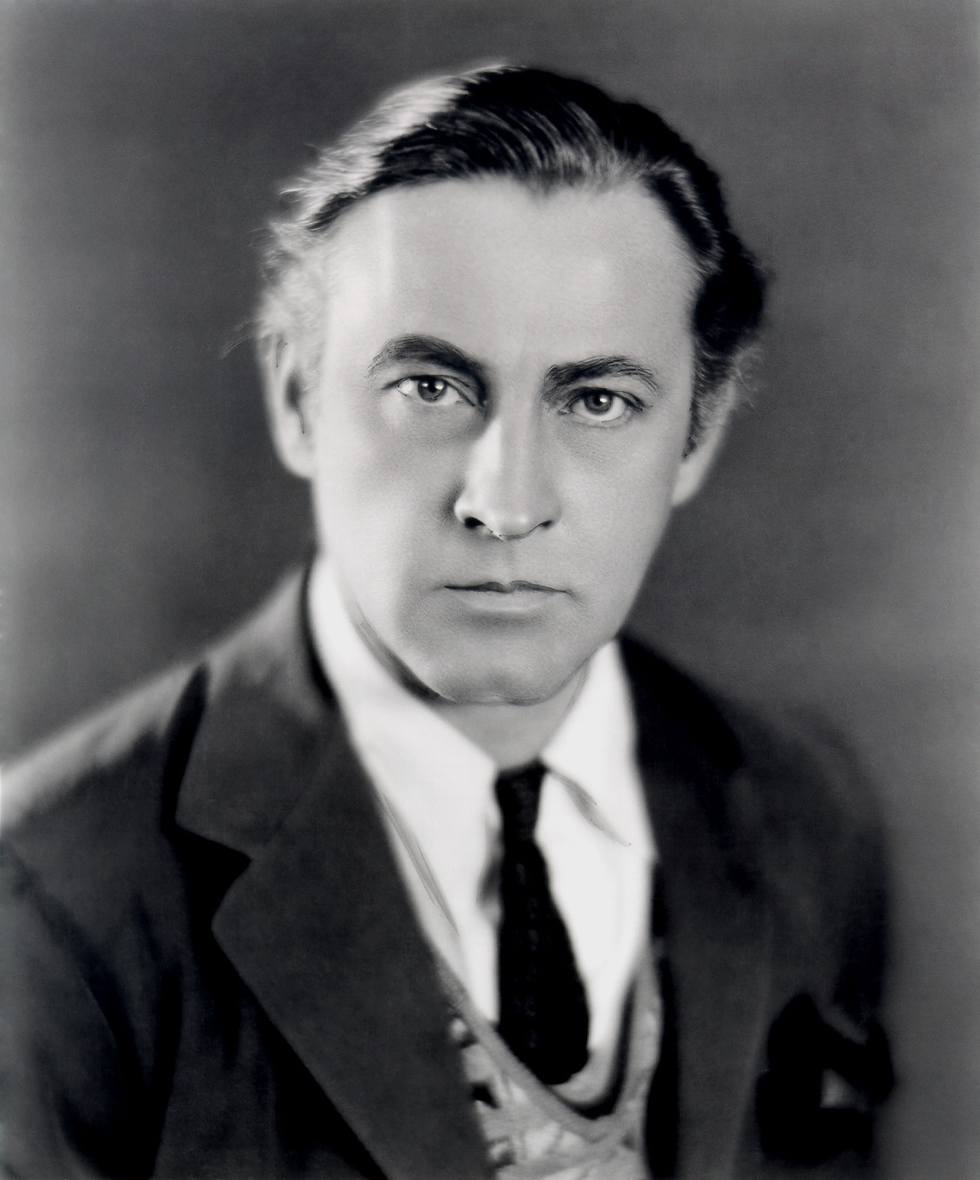
1882-1942
IMDb:
John Sidney Blyth was born in Philadelphia. He had 2 older siblings, a sister (Ethel) and a brother (Lionel), who would become well known actors in their own right. In addition to both of his parents (Georgiana Drew and Maurice Blyth, changed to Barrymore) being well-established actors, his grandparents (on his mother's side) and 2 of his uncles were also entertainers. Entertainment is a "family run" business, and they apparently took this quite seriously!
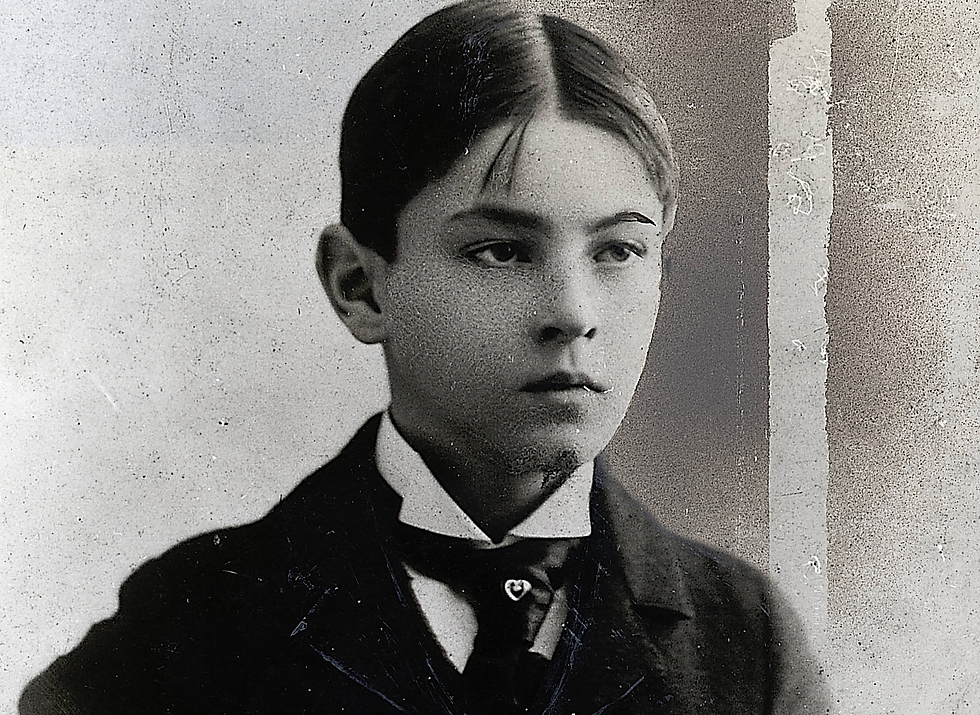
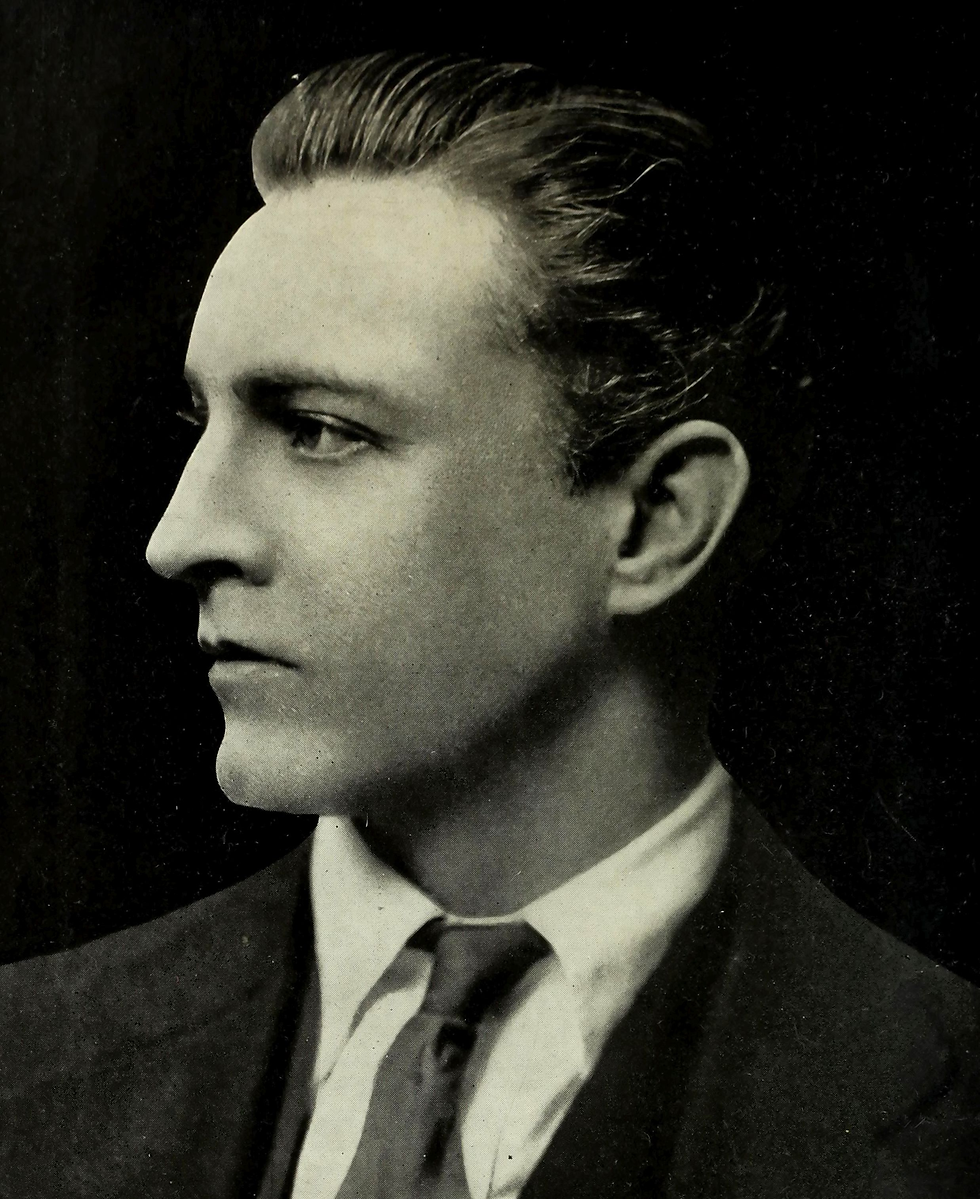
John's childhood was fraught with instability, unfortunately. One year, his parents toured with him and his siblings in tow. The next year, his parents toured again....but left their children with someone else. The following year, the entire family was once again on the move - this time all the way to London, where they lived for 2 years before returning to the U.S.
John, like many children, took to "acting out" and misbehaving quite often. Honestly, who wouldn't? And instead of say, oh, I don't know....giving him some STABILITY IN HIS HOME LIFE....his parents opted to send him to various boarding schools and public schools which he attended while living with his grandmother. This did not improve his behavior, and he was expelled and/or withdrew from a number of them. Surprise, surprise.
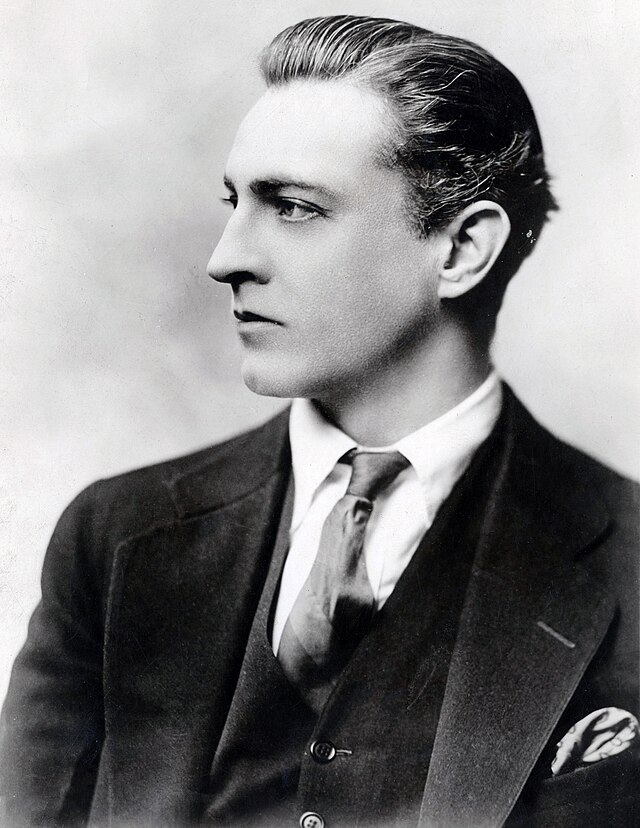
When John was 11, his mother passed away from tuberculosis. With his mother's income gone, Lionel and Ethel decided to start auditioning to help ease their family's financial needs. Their father stayed busy touring and avoiding his family when he was in town by staying at a New York club for actors. So basically, an 1890s manchild.
As a teen in prep school, John developed a drinking problem. And got expelled. Again. Whether for being caught drunk or being caught waiting outside a brothel, we do not know. A couple of years later, his grandmother, the only stability he knew, passed away. His father remarried a woman who....for lack of a better term....was a predator. That same year, John, still a minor, would eventually become....for lack of a better term....a victim.
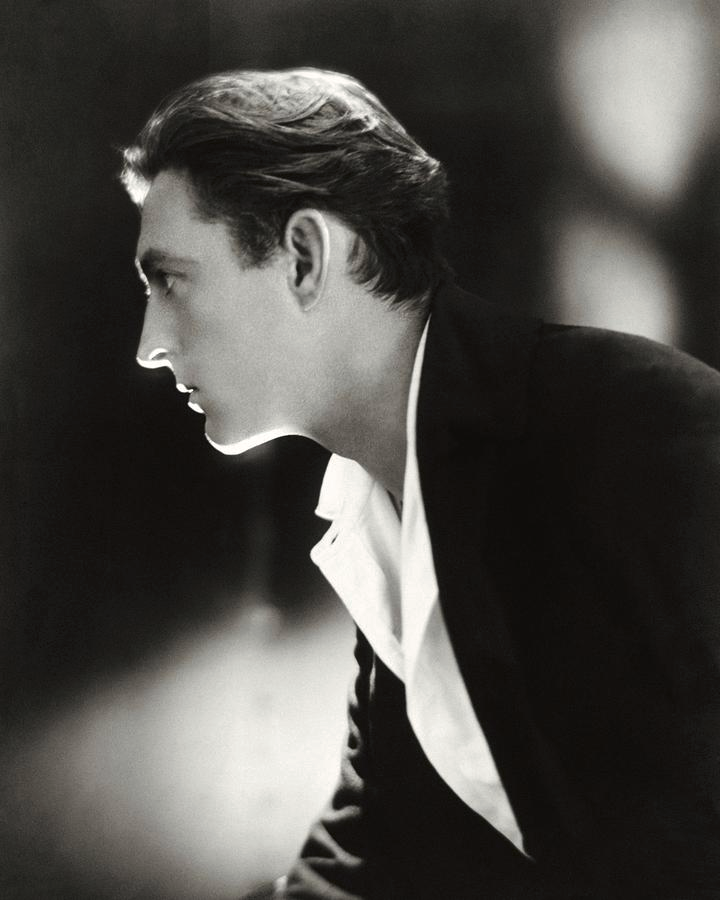
The following year, John traveled to London with his father and spent a year studying art and literature. Eventually, he found "nocturnal adventures" more interesting and once again, dropped out. Ah, John... When he returned to the U.S., he got a job in New York as an illustrator - and was determined NOT to become an actor, like the rest of his family. But, never say never....
Eventually, John's father asked him to be in a stage play that he was producing. And John, thinking of it merely as a way to supplement his income (and not a possible career), reluctantly agreed. John didn't have a great opinion of show business. Wonder why? Soon after, his sister Ethel recommended him for a play she was in, when a young actor needed a fast replacement.
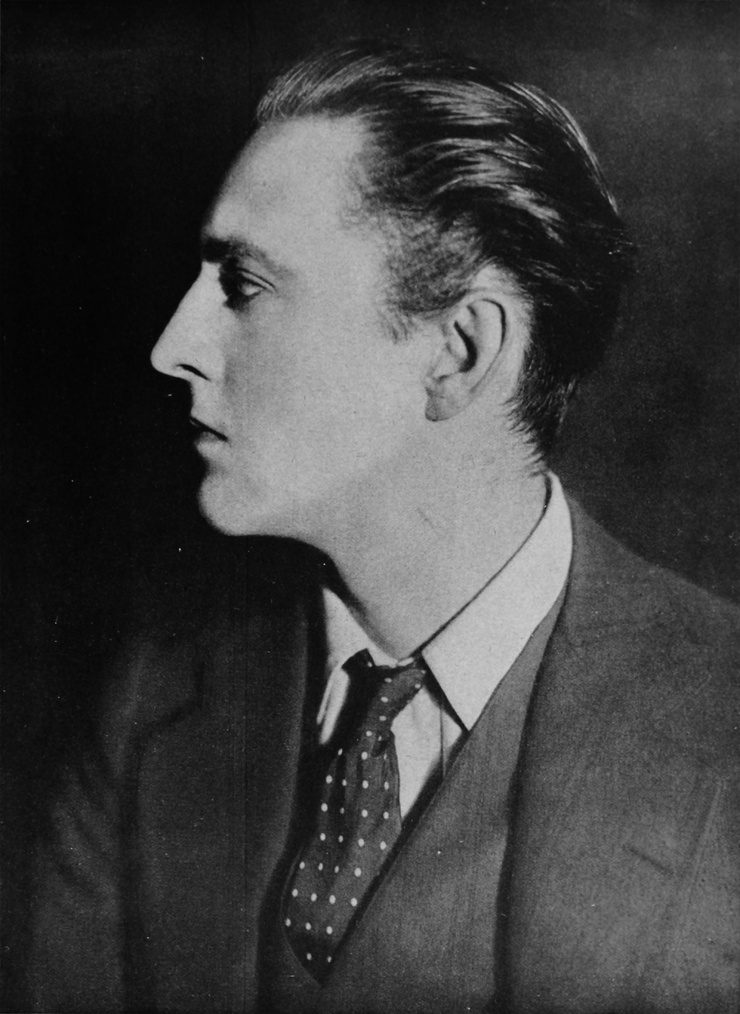
A year later, John's father had a severe mental breakdown due to syphilis, and ended up in the hospital. His decline was rapid, and John was deeply affected, fearing that he, too, might suffer the same fate. Young adulthood was not easy for John - between getting involved with a young lady who would become part of a murder case and getting fired for creating lackluster work as a (somewhat drunk) illustrationist at the newspaper, he was having quite a hard time.
He is quoted as saying to his brother:
"It looks as though I'll have to succumb to the family curse, acting"
John maintained that he took up acting not from inspiration or desire to create, but simply because he needed the money. Which is not uncommon for many a young actor back then.

From 1903 - 1913, John's career was in the theatre. And despite his drinking problems causing issues from time to time (both professionally and personally - even ruining his first marriage), John continued to excel as an actor. And in 1912 or 1913, depending on who you ask, John got his first film role, under none other than the mighty Adolph Zukor!
He. Was. A hit. Several more films followed, and although John could have switched to film entirely, he continued working on the stage as well. For the next few years, his career was very successful. His personal life, however....was not faring well...
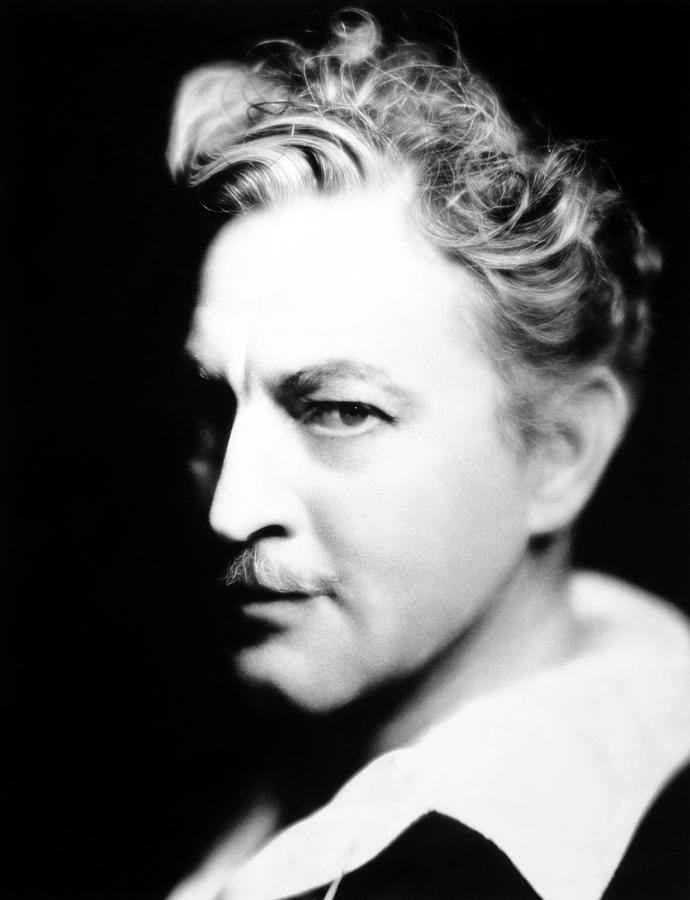
In 1916, his wife filed for divorce. By the time it was final (in 1917), John had tried to enlist in the military for World War 1 - and was turned down due to varicose veins. Of all reasons to be turned down.... His film career continued successfully, as did his stage acting, sometimes acting alongside his brother.
In 1920, John was cast as the dual lead in a film that would make its mark. "Dr. Jekyll and Mr. Hyde" was an overwhelming hit with critics and the public alike. The U.S. Navy used photos of John on recruiting posters - because what better way to get the young people's attention than with a photo of a celebrity?? I ask you.
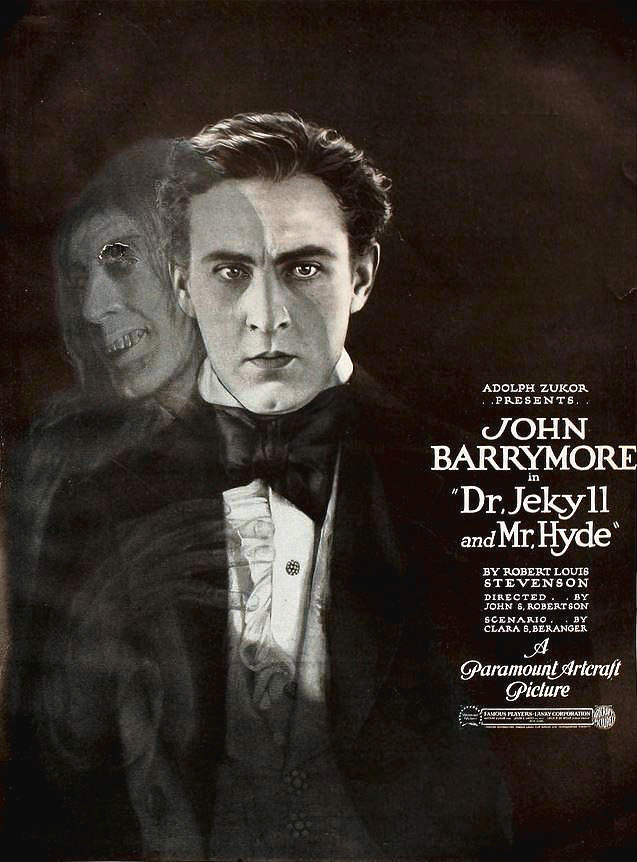
John worked on "Dr. Jekyll and Mr. Hyde" and a theatre role SIMULTANEOUSLY. So it's not exactly a shock that he eventually collapsed and had a nervous breakdown. As anyone who is working tirelessly on one thing during the day, and another at night would. In spite of his play's success, it had to close, and John spent several weeks in a sanitarium.
Not long after his, his married girlfriend became pregnant. Geez, where did this guy find the time.... Her husband granted a quick divorce and she married John. Their daughter, Diana Barrymore, would eventually become another generation of Barrymore actors! Unfortunately, their marriage, like John's first, would not be a happy one...
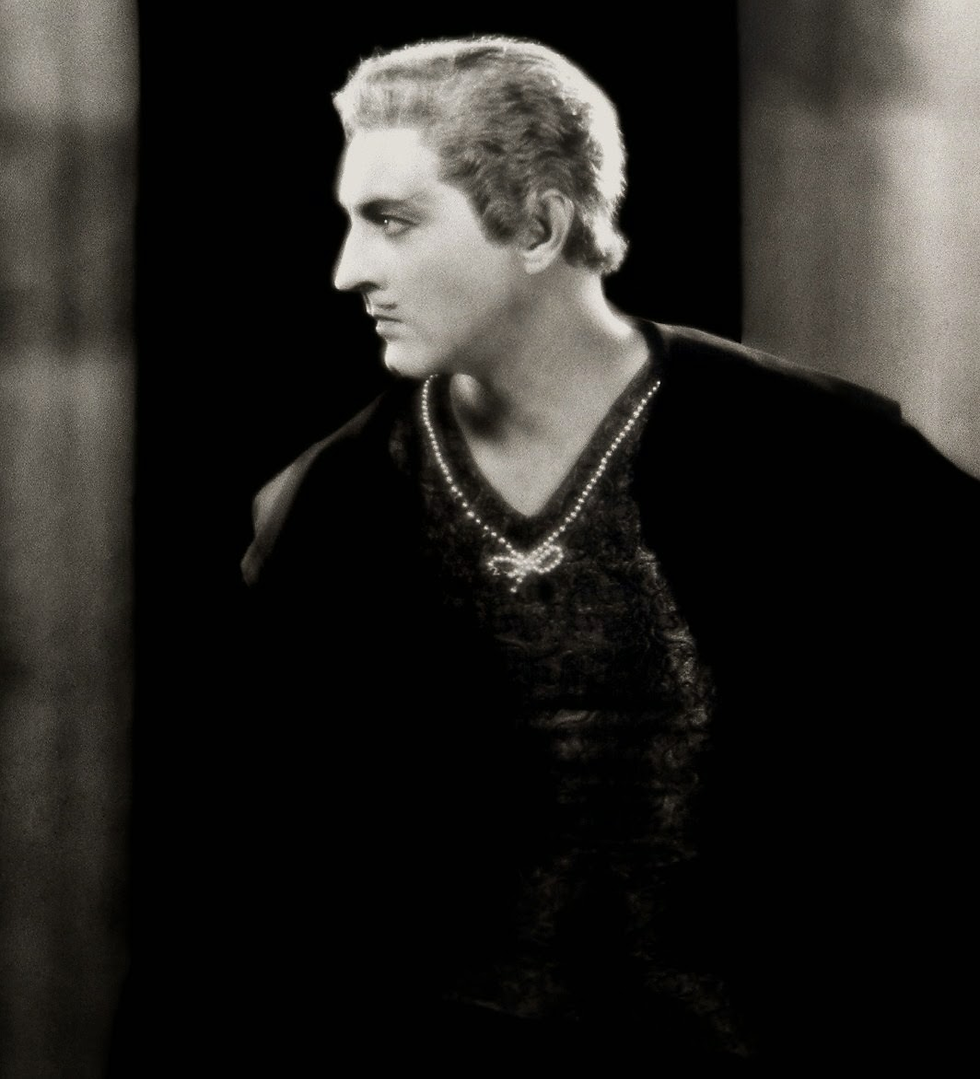
After John played Hamlet in 1923, Warner Brothers came calling. They gave him the lead role in "Beau Brummel", and eventually offered him a contract. Several more successful films followed, including "Don Juan" (1926), which was the first film with a synchronized soundtrack!
What can be said of his later life and career that hasn't already been said? More drinking. More collapses. More hospitals. More wives. More divorces... One of the rare positive notes is that, due to his extensive theatre background, transitioning to sound films was not a problem for John!
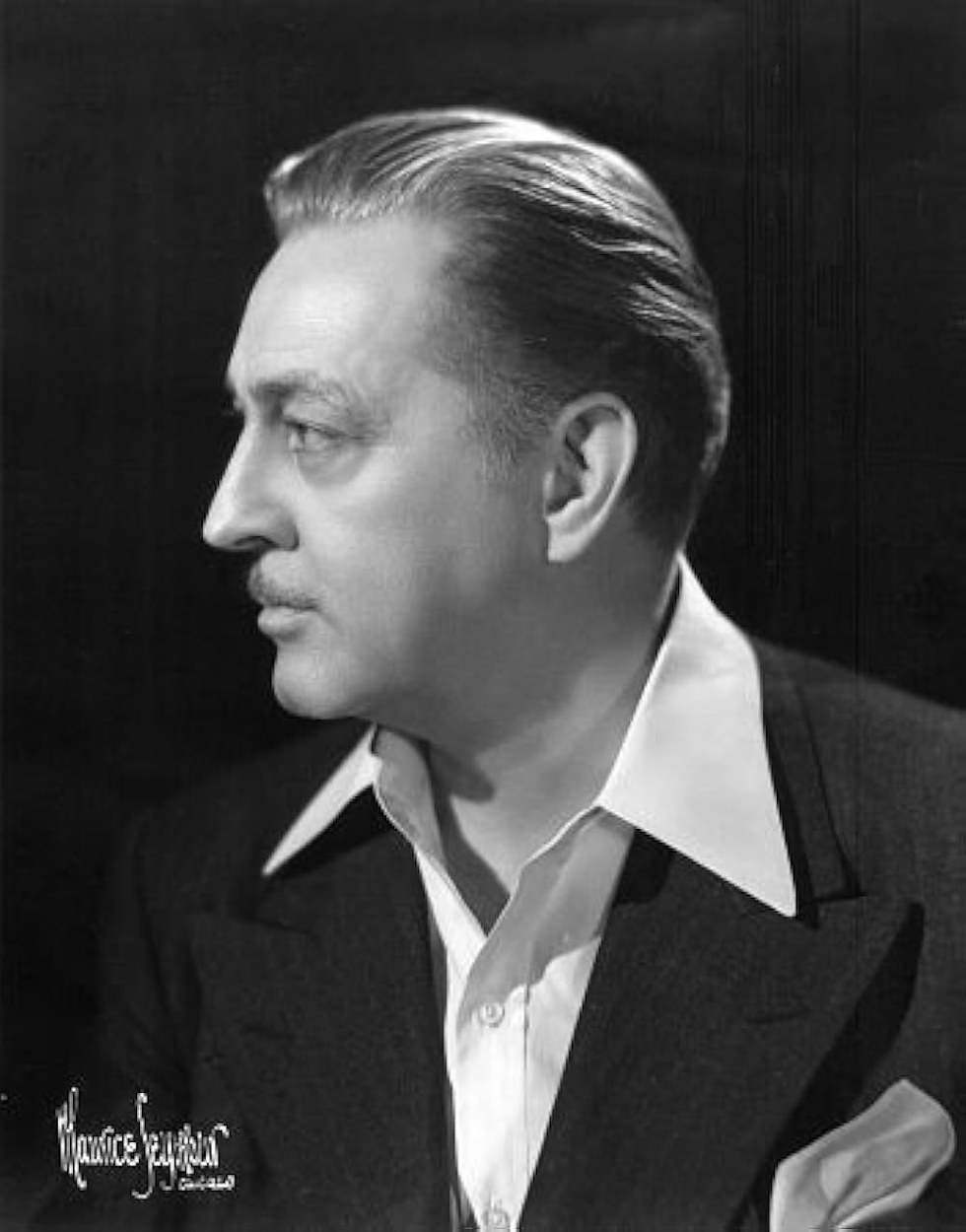
In his last years, John stabilized somewhat and remained sober during his appearances in a radio series for NBC. He received new offers for work when studios heard the good news, as his drinking made him practically unemployable for a time. But unfortunately, by that time, the damage was done to his body and mind, and he could not remember his lines without cue cards. Still, he was diligent and ended up paying off many debts from his later film appearances.
On May 19th, 1942, while working on a radio show, John collapsed for the last time. 10 days later, while hospitalized, he passed away from cirrhosis of the liver and kidney failure, complicated by pneumonia. He was 60.
In spite of the great actor's troubles, he had a great sense of humor and would frequently poke fun at his own (dire) situation. He even starred in a comedy satire movie, titled "The Great Profile" in 1940. But one has to wonder, maybe if there had been less jokes, and more compassion, more introspection....would he have gotten help, and lived a longer, more fulfilling life? Oftentimes, jokes reveal a great deal about the person telling it....what was he actually saying about himself?
References:


.png)



Comments